How Often Roof Should Be Replaced
Knowing how often roof should be replaced is essential for protecting your investment in an outdoor building. For shed owners, especially those with flat roofs, this question becomes even more important. Flat roof sheds are popular for their modern look, efficient space use, and ease of construction. But their low slope means water and debris behave differently compared to pitched roofs. If you own a flat roof shed, understanding replacement timelines, maintenance needs, and warning signs can prevent costly damage.
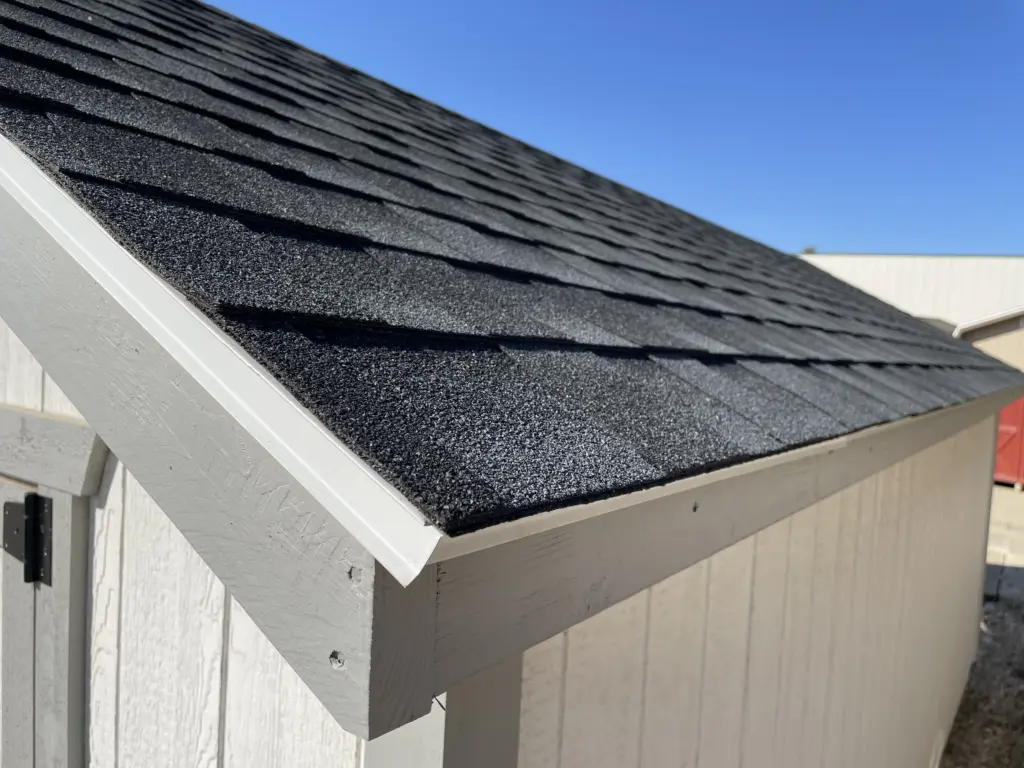
Why Roof Lifespan Matters for Flat Roof Sheds
The roof is your shed’s first defense against rain, snow, and sun. A damaged or aging roof can allow leaks that harm stored items, rot framing, and lead to expensive repairs. For flat roof sheds, the risk is greater because water doesn’t run off as quickly as it does on a steep slope. This constant exposure to moisture can shorten the roof’s lifespan if it’s not built and maintained properly. By knowing how often roof should be replaced, you can plan maintenance and budget for upgrades before small problems turn serious.
Average Lifespan of Flat Roof Shed Materials
Different materials have different lifespans. Asphalt roll roofing, common on smaller sheds, typically lasts 8 to 12 years with good maintenance. EPDM rubber membranes can last 20 years or more when installed correctly. Metal roofing panels, used on some sheds, may last 30 years or longer. The climate plays a big role too—intense sunlight, heavy snow, or frequent freeze-thaw cycles can wear materials faster. Hartville Outdoor Products’ sheds use quality roofing materials designed to extend these averages.
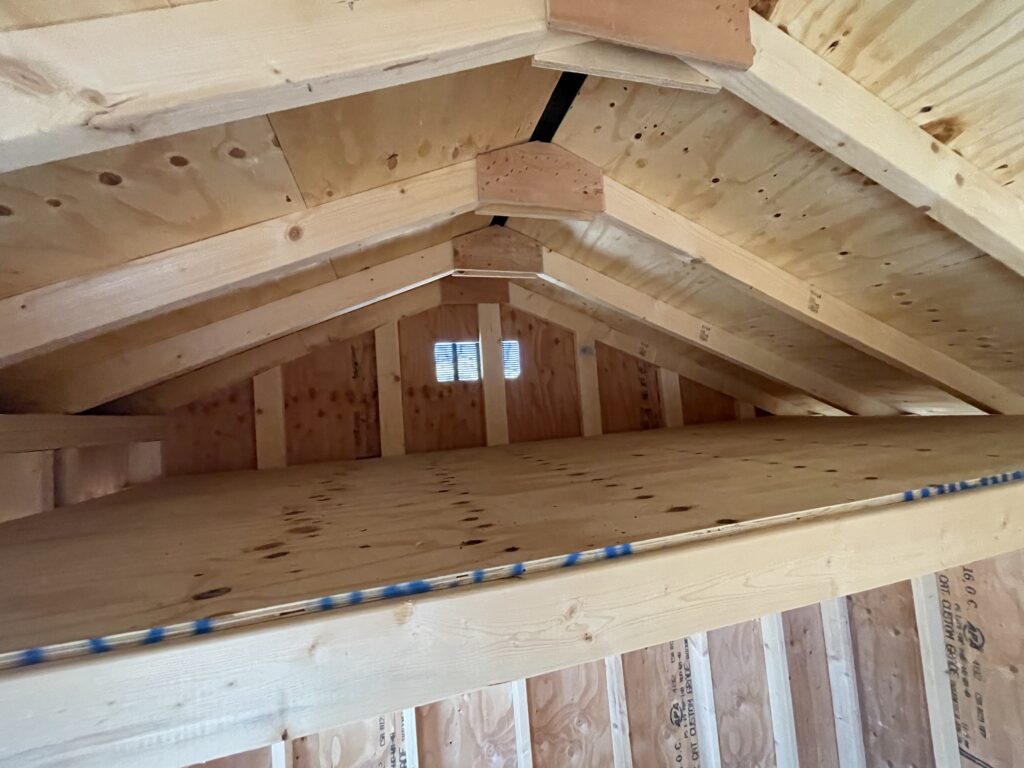
How Often Roof Should Be Replaced: General Guidelines
For most flat roof sheds, a good rule of thumb is to expect replacement every 10 to 20 years depending on the material and care. Asphalt roll products will be on the shorter end, while rubber membranes and metal can last longer. These timelines assume regular maintenance—without it, lifespan can drop dramatically. Even if your roof hasn’t reached its average age, weather damage or installation issues can require earlier replacement.
Signs a Flat Roof Shed Needs Replacement
Age isn’t the only factor in deciding how often roof should be replaced. Watch for cracks or blisters in roofing material, water pooling for more than 48 hours after rain, rust on fasteners or metal panels, and soft spots when you walk on the surface. Inside the shed, water stains on the ceiling, mold on walls, or musty smells are strong signs the roof is compromised. Family Handyman notes that ignoring these issues can lead to structural damage over time.
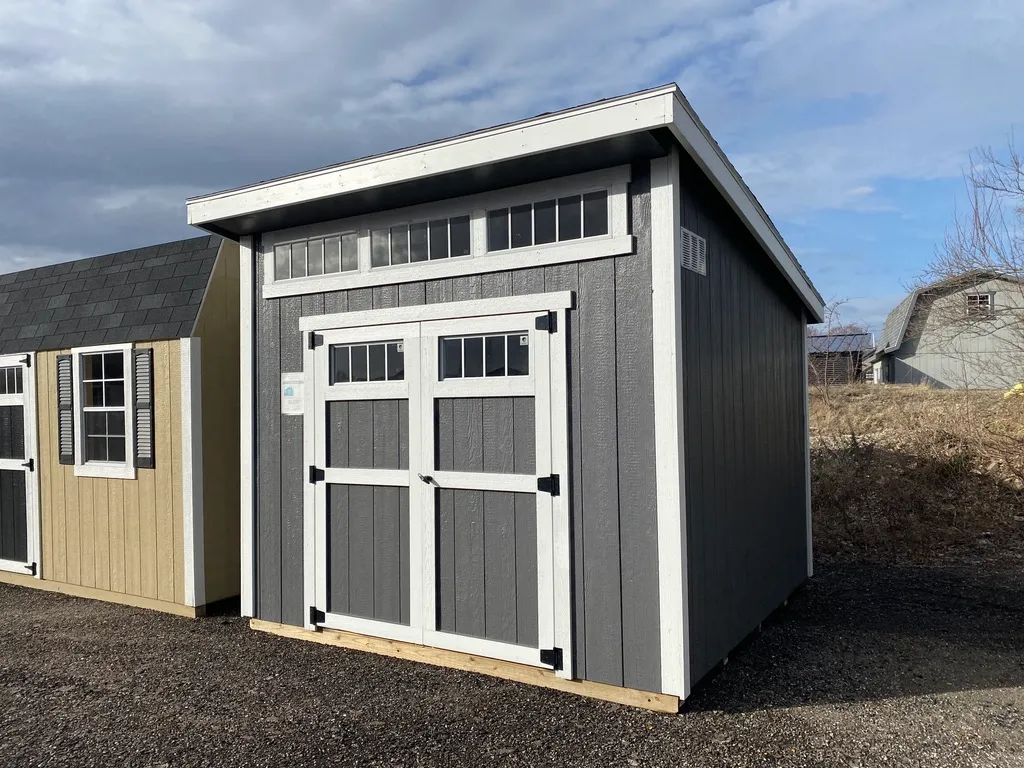
Maintenance to Extend Roof Life
Routine maintenance can delay the point when you must replace the roof. For flat roof sheds, this means clearing leaves and debris, checking for punctures after storms, and ensuring sealants around vents or edges are intact. Twice-yearly inspections—once in spring and once in fall—help catch problems early. If your shed is near trees, trimming branches reduces debris buildup and prevents damage from falling limbs.
Impact of Climate on Roof Replacement
Local climate affects how often roof should be replaced on any structure. In snowy regions, heavy snow loads can stress flat roofs and cause leaks if melting snow can’t drain. In hot climates, UV rays break down roofing material faster, leading to cracks and brittleness. Areas with frequent rain may see more moss or algae growth, which can hold moisture against the surface. Choosing materials suited to your region and maintaining proper drainage can help slow wear.
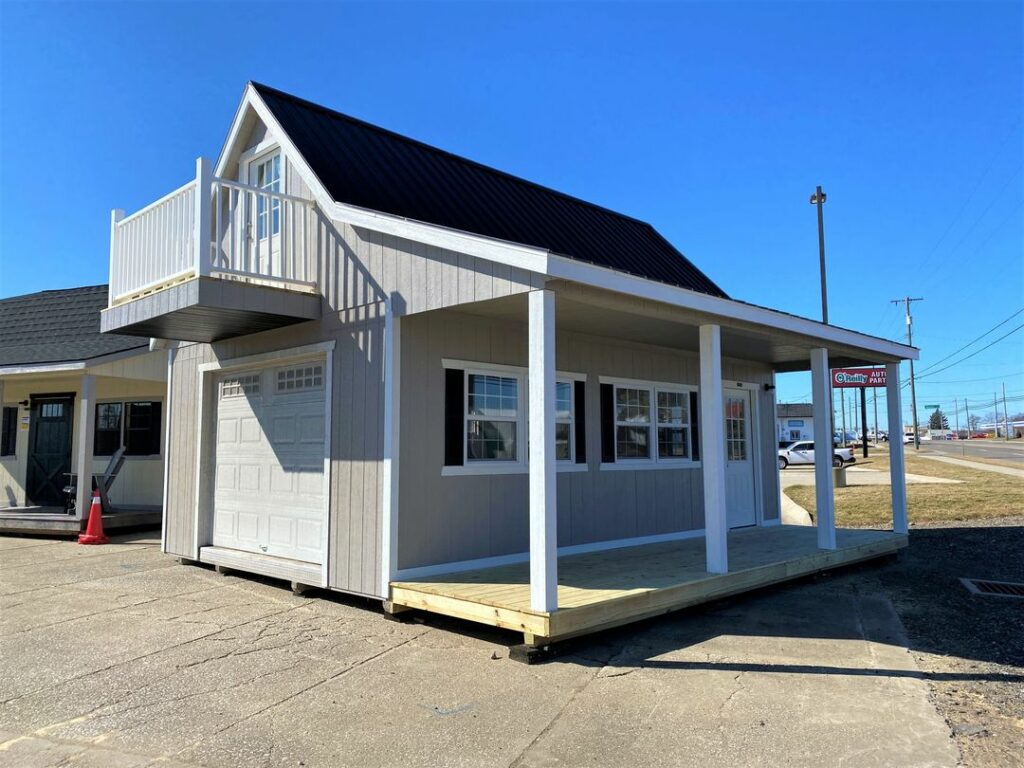
Flat Roof Shed Replacement Options
When it’s time to replace your shed’s flat roof, you have options. Asphalt roll roofing is budget-friendly and relatively easy to install but offers a shorter lifespan. Rubber membranes like EPDM cost more but last longer and resist UV damage. Metal panels offer durability and a modern look, though they may require more structural support. Hartville Outdoor Products can help match the right roofing option to your shed’s design and your long-term needs.
Cost Considerations for Shed Roof Replacement
Replacing a flat roof shed is generally less expensive than replacing a house roof, but costs vary. A small asphalt roll replacement might be $300 to $500, while a premium rubber membrane could be $800 to $1,200. Metal roofing may cost more depending on the gauge and finish. Labor costs depend on whether you hire a professional or handle the replacement yourself. For a precise quote, it’s best to speak with a local shed specialist.
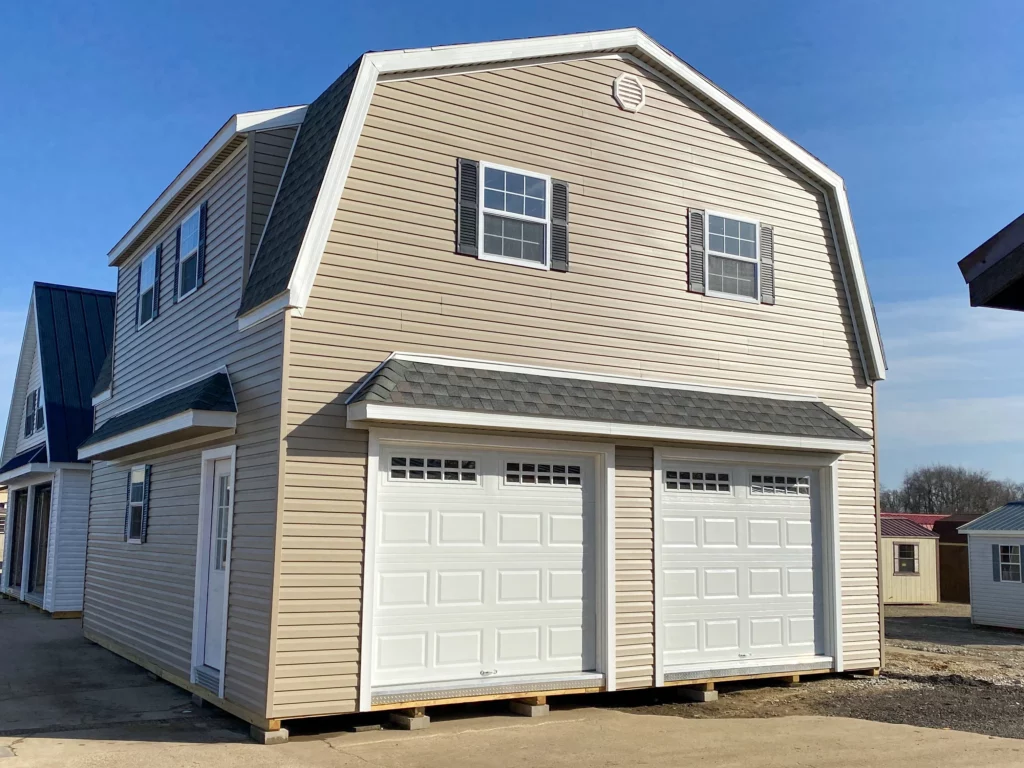
Professional vs. DIY Replacement
Some shed owners choose to replace their flat roof themselves to save money. If you’re experienced with roofing tools and safety, this can be a feasible option for smaller sheds. However, improper installation can lead to leaks and shorten the roof’s lifespan. Professional installation ensures proper sealing, drainage, and material handling. It can also include warranties for both materials and labor, which gives peace of mind.
How Often Roof Should Be Replaced on Other Structures
While this guide focuses on flat roof sheds, the principles apply to garages, barns, and other outbuildings. Pitched roofs often last longer because they shed water and debris more easily, but they still require regular inspection. By understanding replacement timelines across different building types, you can create a maintenance schedule that keeps all your structures in top shape.
Hartville Outdoor Products: Built to Last
If you’re planning a new shed or replacing an old roof, Hartville Outdoor Products offers custom sheds with roofing designed for long life. Our builds use quality materials, expert installation, and proper drainage design to maximize your shed’s lifespan. Whether you need a compact storage unit or a large workshop, we can help you choose the right roof for your climate and budget.
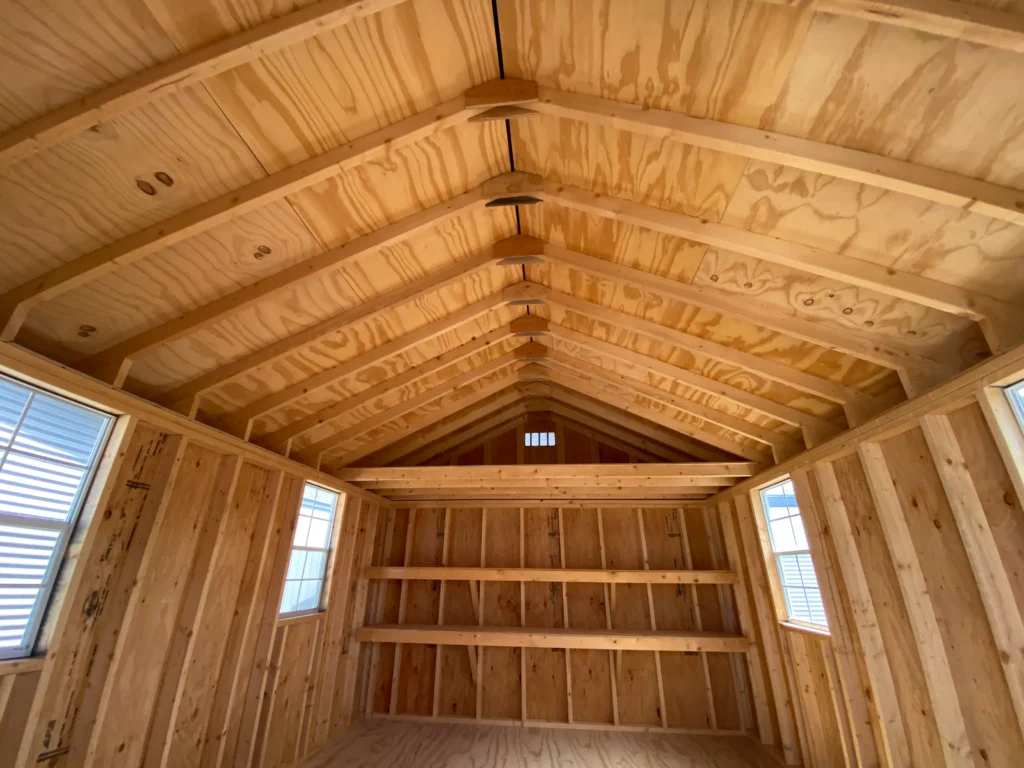
Conclusion
Understanding how often roof should be replaced helps shed owners protect their investment and avoid costly repairs. For flat roof sheds, replacement every 10 to 20 years is common, but regular maintenance can extend that timeline. Watching for warning signs and choosing the right materials can add years to your roof’s life. Hartville Outdoor Products offers durable sheds and professional roofing solutions to ensure your structure stays strong for decades. Visit our shed collection or stop by our showroom to discuss your next project.
